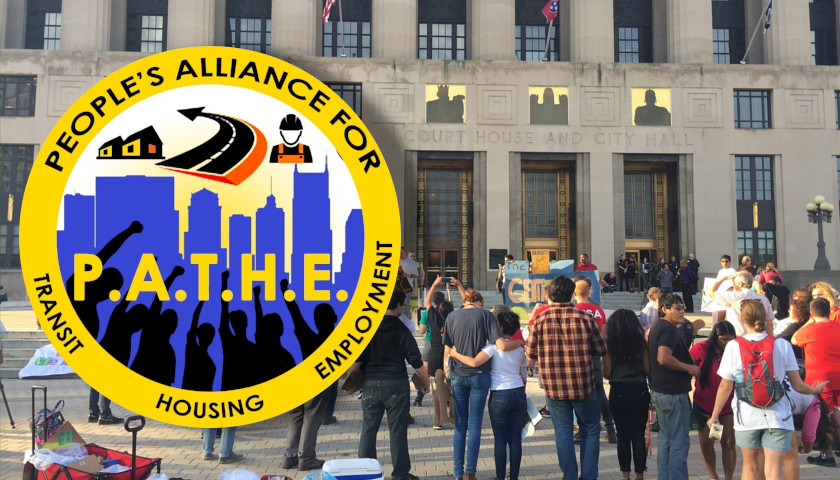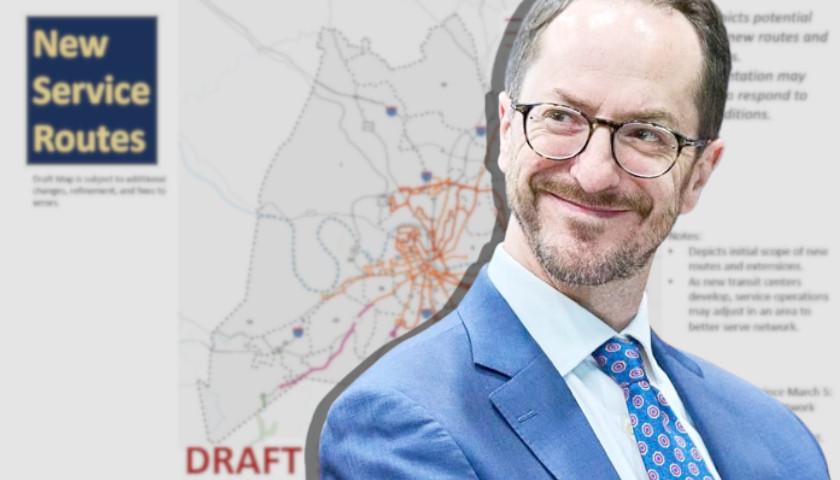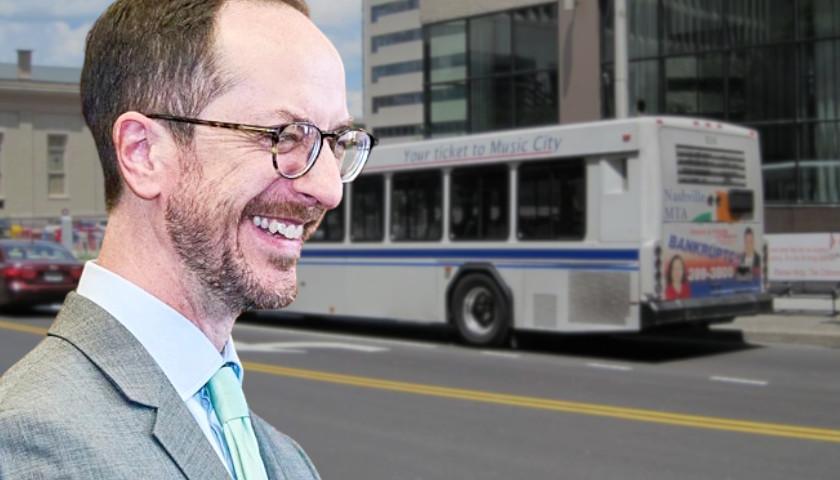Many critics of Nashville Mayor Megan Barry’s mass transit proposal are conservatives and libertarians, but her plans have also prompted criticism from left-leaning advocates of the poor and working class.
A group called People’s Alliance for Transit, Housing and Employment (PATHE) has formed to press the progressive Democratic mayor and other Metro leaders to make affordable housing, higher wages and immediate improvements to the bus system greater priorities. A key element of Barry’s proposal is light rail along five corridors, but PATHE maintains that “light rail is meaningless if most of us can no longer afford to live along the routes,” according to a statement on the group’s website describing its mission and purpose. The statement also says:
While no one denies that our public transit system needs major expansion, we still have not been presented with a plan that addresses the most pressing crises facing our communities, mainly economically distressed neighborhoods and residents. The experience of other cities, including Denver and Atlanta, has shown that without explicit community benefits (or equivalent measures) legally written into or alongside major transit projects, there are unintended, devastating consequences for everyday people. These include dramatic cost of living hikes along new transit corridors, mass displacement of poor and working-class residents, closing of small businesses, land grabs by private investment firms and developers, and loss of bus services in neighborhoods that need it the most.
On Thursday evening, PATHE was involved in a protest march to one of Barry’s “open houses” on her proposal held at Tennessee State University. The march took the form of a funeral procession to lament neighborhoods impacted by gentrification in ways critics view as destructive. Students from Fisk University and Tennessee State University participated in the march.
On Oct. 25, PATHE held a press conference on the steps outside Metro’s courthouse and city hall to draw attention to their concerns.
Formally released Oct. 17, Barry’s proposal came two years after the development of a tentative regional mass transit plan called nMotion, estimated to cost $6 billion. Barry’s proposal covers only Davidson County. At a cost of $5.2 billion, the plan reveals the enormity of what the mayor wants to do. In addition to light rail and improved and new bus service, Barry’s proposal calls for an underground tunnel downtown, which has significantly added to the cost of the Davidson County project. She’s asking Metro Council to put a referendum on the ballot in May to get needed funds through tax increases.
PATHE is requesting that Metro hire residents from economically distressed communities to work on the transit project if it goes forward.
“It is also important that the contractors and subcontractors selected to work on the light rail and related transit-oriented development only be awarded bids if the bids have verifiable, best-value contract practices in compliance with fair wage and civil rights protections, especially regarding race, gender, and Limited English Proficiency,” the group says in its statement.
“Our city shamefully witnessed wage theft and hazardous conditions in the construction of the $623 million taxpayer-funded Music City Center; we must do better,” the statement continues.
PATHE also wants all light rail employees to be unionized.
Other critics of Barry’s proposal have said her plans are too costly and outdated for today, when technology is changing how people use transportation.









[…] Davidson County are too outdated and costly, and working class residents and business owners are worried about being displaced along transit […]
[…] People’s Alliance for Transit, Housing and Employment (PATHE). The latter group is particularly concerned about the issues to be addressed by the taskforce. The PATHE website says that “light rail is meaningless if […]